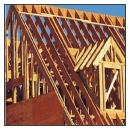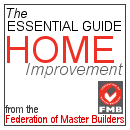How do I calculate my building cost
We all know that the building cost of a new home, extension or conversion
can be high, but how do you calculate and set your budget?
When you're thinking of building a brand new home, adding an extension to
your house, or converting a loft or cellar area, one of the most important
things you need to do is set a budget. This will allow you to save or borrow
the right amount of money for your project to be successful. Once you have
plans and planning permission, your chosen builder can give a you a building
cost, but there are additional costs to be taken into account.
Land
This part of your budget only applies if you are building a new home.
Buying a building plot can take up around 30% of your overall budget, so you
need to research the average plot prices in your area to see if you can
afford to buy land and build a house, or if it would be more cost-effective
for you to buy an existing property and extend it.
Planning costs, finance and fees
You will probably need to borrow money for any building work you carry
out. If you are building a new home, you will need a Commercial Build
Mortgage. If you are improving your home you can extend your existing
mortgage or take a out a separate loan. Whichever applies to you, you will
need to add interest charges and fees to your building cost budget. This
includes the monthly payments you need to make whilst your project is in
progress, along with fees payable to solicitors, surveyors, architects, land
agents and the planning office. Don't miss anything out - these costs can
add up very quickly.
The building cost
The cost of the building work will be agreed between you and your
builder. When you are setting a budget, it makes sense to speak to a few
builders to get an idea of the general cost. When you ask for a formal
quotation, make sure you get one in writing and in detail, because this will
help you create a budget that you can easily control. If you can see where
each payment is going, it will help you keep track of your spending, and to
query any costs that differ from your agreement.
Finishing and decorating
Once your home, extension or conversion is complete, it will need
finishing, decorating and furnishing. Don't underestimate these costs. If
you can decorate yourself, that will help to keep your costs down. Look for
furniture in sales, or ask for discounts if you are buying a large amount of
furniture from one store. Look at all the ways you can to save money, and
make sure you have allocated enough in your building cost plan to complete
your project.
Outdoor spaces
Extensions and re-builds usually means there will be some disruption to
your garden. Plan to have some money in your budget to re-pave, re-turf or
add new plants. If you are building a house from scratch, your building cost
plan will need to include money for landscaping and planting, plus driveways
and boundaries.
Contingency
Always have a contingency amount available. This could be a fixed amount,
but it is easier to make it a percentage of your total spend. Therefore, if
your project building cost is £20,000, have 10%, or £2,000 available in case
the project overruns, materials need changing, or you change your plans.









